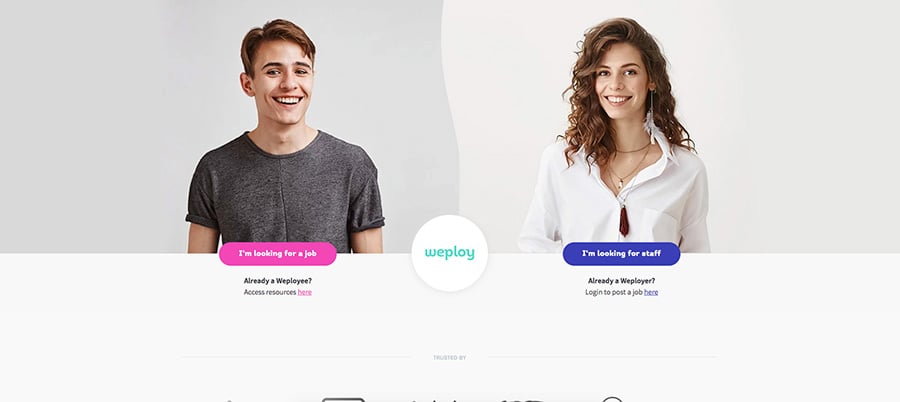The age old question. Does website size matter? That’s what Cosmo, Vogue, Men’s Health, and all those other magazines were referring to in all those columns they wrote. They were simply using sex as a way to sell their covertly geeky articles about digital marketing.
.gif?width=1024&name=giphy%20(2).gif)
What they really wanted to put on the cover was “Does the size of your website affect its performance?” But we know sex sells, so their editors forced those poor writers to approach the topic from a different angle. Well, fear no more. The editors at You & Co think website talk is sexy, so finally we can break down the walls and talk about the real topic at hand. Is a bigger site always better?
Over the next couple of minutes that you’re reading this, we’ll cover off on two of the most common claims we hear on this topic. The first is the impact of a website size for SEO (how your site ranks in search engines). The second is how site size affects a website creation or redesign project, in particular, the value of building a site up over time versus building a big site upfront.
"More website pages means better SEO rankin"
– Starfish Simon
Let’s start with the most common claim. The more pages you have, the better your site will rank in organic search. While there seems to be some truth to this, it’s dangerous to assume that just because your website has more pages, your site will perform better. The one and only Matt Cutts (who up until the last day of 2016 was one of the big shot engineers at Google) shed some light on this topic. He flat out said that a bigger site doesn’t necessarily mean a better ranking.
What a bigger site means though is the following:
- More pages indexed in Google - this increases the likelihood of visitors finding your site (more hooks in the water so to speak) which in turn helps boost your organic ranking.
- More pages means more links (both internally and externally) which pushes the Google spiders to crawl more of your site.
The quality of your website content though cannot be stressed enough. Even if you do have more pages, and your site is being visited more frequently by users and spiders alike (sounds creepy), it all means nothing if your site is junk. In fact, having more low quality pages will damage your site.
"It's dangerous to assume that just because your website has more pages, your site will perform better."
A website with 5 keyword optimised, high quality pages will outperform a website with 30 low quality pages with no semblance of an on page SEO strategy. Quality over quantity, friends.
"I want every page right now, the visitors will be looking for them!"
– Overcompensating Oliver
There are a few questions that seem to come up often from clients when we’re discussing creating or redesigning their website. Those clients with older sites tend to be more attached to all the pages they’ve accumulated over the years, some adamant that they don’t want to get rid of them.
It’s no different to cleaning out your closet. What if you throw something out and then you realise a few months later you need it? What if you get rid of a web page and then a user comes looking for it?
Holding on to all these extra pages can be detrimental for a few reasons:
- It creates a lot more maintenance work. More pages to check, more pages to update, more pages to optimise.
- If these pages are low quality then your organic rankings will suffer. They need to be keyword focused, they need to be content rich (at least 500 words or more), and they need to present value to the user or Google’s spiders will quickly mark your site down if they don’t deem them to be good enough.
- “But the content on these pages is super relevant to my visitors!” you say. How often have you been on a site and felt overwhelmed by the amount of pages and choices you are being met with? How often have you left that site? This point has the potential to open up a whole can of user experience (UX) philosophy inclined worms, but we’ve reduced some clients’ website sizes by as much as 50% and seen marked increase in overall performance.
Using Data Vs. Assumptions to Craft a Website
There’s a methodology called “Growth-Driven Design” that we here at You & Co have come to appreciate and primarily use when taking on web projects. There’s one idea in particular which is known as the “80-20 rule”. Basically, 20% of your website will do 80% of the work. So if you have 10 pages on your website, 2 of those pages are going to be doing the heavy lifting. These are the two pages that you need to nail. Now that doesn’t mean the other 8 pages just go down the drain, but it does mean prioritising your efforts accordingly.
Using Growth-Driven Design, a website can be redesigned or created much quicker than a more traditional approach, and in a far more cost-effective manner. Rather than endless resources into a new website project that stretches out for months and always goes over budget, let the data do the work. Don’t just assume that something will work because it looks pretty or because you’ve seen big companies do the same. Let your website constantly evolve and improve month-on-month by running tests and updating as you go.
Imagine pouring all those resources into a new website, and after all that time, you find it’s just not working for your users. The bounce rate is higher than ever and conversions are at an all time low. GDD is a preventative measure for this. Even if the first iteration of the new site isn’t smashing goals, you’ve got the flexibility and necessary data to build on it.
There’s plenty to cover with GDD, so let’s stop there. If you’d like to read more about it though, we’ve got a complimentary ebook that you can download by submitting the form just down there 👇.
So, Does Size Matter?
The answer to that question is the same as the one you’ve read in Cosmo and Men’s Health and the like. It’s not how big it is, it’s how you use it. Size can help as mentioned, but only if all those pages have been optimised and create an appealing user experience. Don’t go into your next website project with the mindset that you need a big site from the get go. Start with the essentials, and then let data guide you over time to build a high performing site. If you use your site right, visitors won’t think twice about the size 😏.







